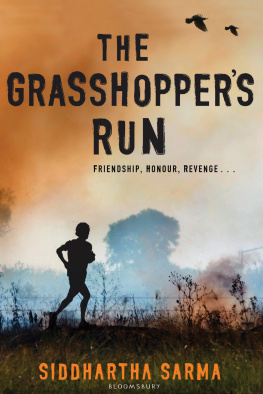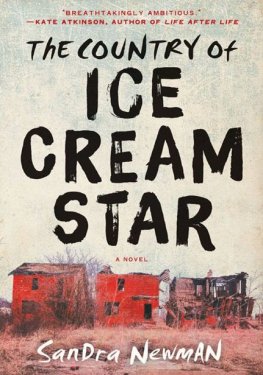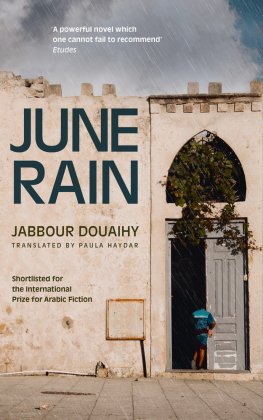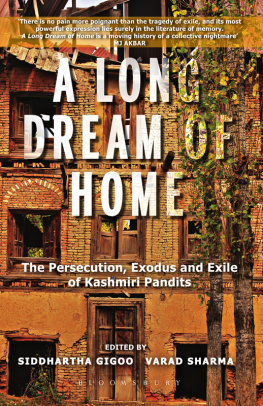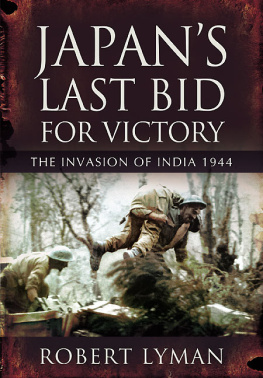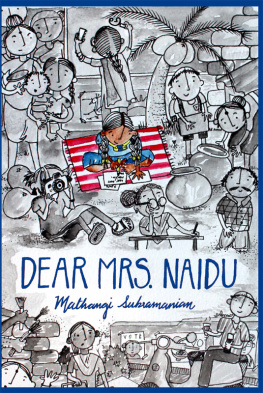Historical fiction, like history, is a collaborative effort. This story would not have been written if it werent for:
Chris Hunt of the Imperial War Museum, Kent, England, who pointed me in the right direction during my initial research on battle tactics in the Burma Campaign;
Rupam Jyoti, Navaneet, Mriganka, Manas and all the Boys back home who very enthusiastically egged me on during my travels in the North-east and Burma and who provided an op base in Guwahati;
My uncle Bimal and his lovely family at Digboi for the forward op base while I took a look at Assam and Burmas oil belt during the war;
All the officials and staff at the State Museum, Guwahati, for throwing open their collection and archives with a smile;
Peihau Nsarangbe, Research Assistant, Art and Culture at Kohima Museum for his guidance while I researched the Battle of Kohima and for his insight into the Ao Nagas;
U Phrien, policeman and poet, who dexterously guided me during my stay at Tamu, Burma and arranged for just the right rifle and bullet;
Colonel M.C. Baruah, Mahar Regiment, Gajraj Corps, for helping solve a particularly knotty ballistics issue and M.L., on the Other Side, for his views on the art and science of hunting man;
Mel Ewing and all the big guys at Sniper Central for their knowledge, encouragement and advice;
Everybody at Scholastic India, for everything, from the beginning to the end, which made telling this story such a pleasure, particularly Sayoni, who gently let me totter through several deadlines and Shantanu, who started it all by making me return to something I had left behind and
My late grandfather, to whom this story is dedicated.
The hall khalasi knocked on the door a full hour before time, discreetly but just loud enough. The boy came off the bed as he always did, almost fully awake. Some part of his mind told him instinctively it was too early for his wake-up call, and the blackwood Siemens on the wall confirmed this.
In most ways, the boy was a creature of routine, a routine he had created to make sure he did not become like, say, Hendy Henderson, the other sleeper, whom nothing short of a Jap bomb could wake up before eight.
Gojen Rajkhowa, however, was a runner. He was many things, including the A team keeper, but of all things in this school, he was a runner. Each day he woke at dawn and ran five to seven miles, alternating with quarter-mile sprints every weekend, long easy strides across country, smelling the dawn and hearing the dawn sounds, pacing himself.
He was glad to study in Bengal, as close to home as possible then, but the earth did not feel the same. It had the smell of too many people living and cultivating the same patch over too many centuries, too much history of famine and misery, not like home, not like the feel of the fertile fields and the nearness of the forests and the hills and the rains.
He was on the big side for his age, had rather oversized hands; his bones were long and he was slim, even lanky, not too big or deeply insulated but tough in the way boys recognise quickly and learn to avoid. If you asked them why, they would not have given a plausible answer. It was an instinct, that was all.
His face, on a short but thick neck, was plain and unremarkable, even ordinary. People passed him by without a second glance. Which he liked. His cheekbones, seen in a certain light, were high, the mark of his Thai ancestors, but his eyes were not nearly as Mongoloid as other Ahoms.
He was popular in his way, as a good keeper, and had a few friends, English, Scottish Protestants and a few Irishmen and Indians, had learnt their humour and handled his soup spoons and butter knives with the knowledge of fifteen years of careful breeding. They liked him for his ease and comfort among them, his friendliness, his familys background. He belonged, they all thought.
Sometimes he would walk the grounds or the fields outside and his eyes looked and saw everything, but differently: distances, heights, gradients, the position of the trees and their proximity to each other, the flight pattern of some bird.
And, more important, remembered.
He would often choose places from where the view was wide and far. He would sit and look at the distance, his body still, his hands and feet steady, not moving at all. His friends noticed his capacity for immobility, a complete inertness when he sat like this, but it was not stiffness either, nor was he uncomfortable. It was a type of ability.
He was also disgustingly good at mathematics, but this was no surprise to the one man in the school who knew who he really was.
A man is here to see you, sir, said the khalasi , with the proper respect kept for residents of the school and the masters.
Something in the way he said man clicked in the boys head, for he had an ear for these differences. Whoever it was, and the boy seldom had visitors, was unexpected and different to the bearers experience.
The man was sitting in the shade of a mango tree, one of several on the new grounds of the school, which had shifted here outside Calcutta two years ago, after the city was bombed by Japanese aircraft. Some would call this a needless precaution, shifting an entire school for a distant war, but the parents were such that when they made a suggestion, it was usually followed.
The boy saw the man first and it touched him that he had shown the courtesy to wear a dhuti-panjabi as a gesture to the city he was in. It was as much an effort at blending in, at not drawing attention, although the mans face, his swarthiness, his build and the honour-tattoos peeping out from the collar at the neck said something else.
Mopumeren, khura , said the boy, smiling. Among them he addressed each by name but for this man he also said uncle. If we get you a Gandhi cap you will look ready to join the protesters. Only way I can get thrown out of this school now, he said, needling the older man. But he saw his particular type of humour was not much use.
What brings you here? When did you arrive?
Shiluti is dead.
Like that. There was no hesitation, no outward sign of grief, no method or formula for breaking the news. Mopumeren knew this boy could take it, like he could.
The boy sat down next to him and stared at nothing. Like that. Uti was dead. The words went around inside his head and he sat there for a long time and a short time.
How?
Japani. Your grandfather heard they were moving into our hills in large numbers and he told the old man. We all knew the Japani were in Konyak land, but we never thought there were so many of them. The old man sent runners to all the villages there, but when they reached Utis ancestral village they found the whole village killed.
The whole village. Eighty people from Utis tribe, in their ancient village. Secure in their belief that, as in the past, no one would come across the ravine. Underestimating the speed with which this invader moved and went everywhere. Not understanding that this was a different war.
They tied him to a stake and cut him, I think with bayonets. I think they enjoyed it. They bled him a lot before he died.
Gojen said nothing.
The old man sent me to you by the first ferry. He wants
I am going back with you.
He said it depends on you. But he wants you to do something first.
The man brought out a small parcel wrapped in palm leaves to keep it dry. The runners did not stay to bury the people but they brought Uti back and buried him at Mokokchung. Other people buried the villagers. But the runners found this behind a hut.
The boy took the piece of paper from its wrapping. It was a better kind of mill-made rice-paper, but coarse still, the print smudged in parts. It was covered in what the boy thought must be Japanese, although he could read the English sentences.
Next page
